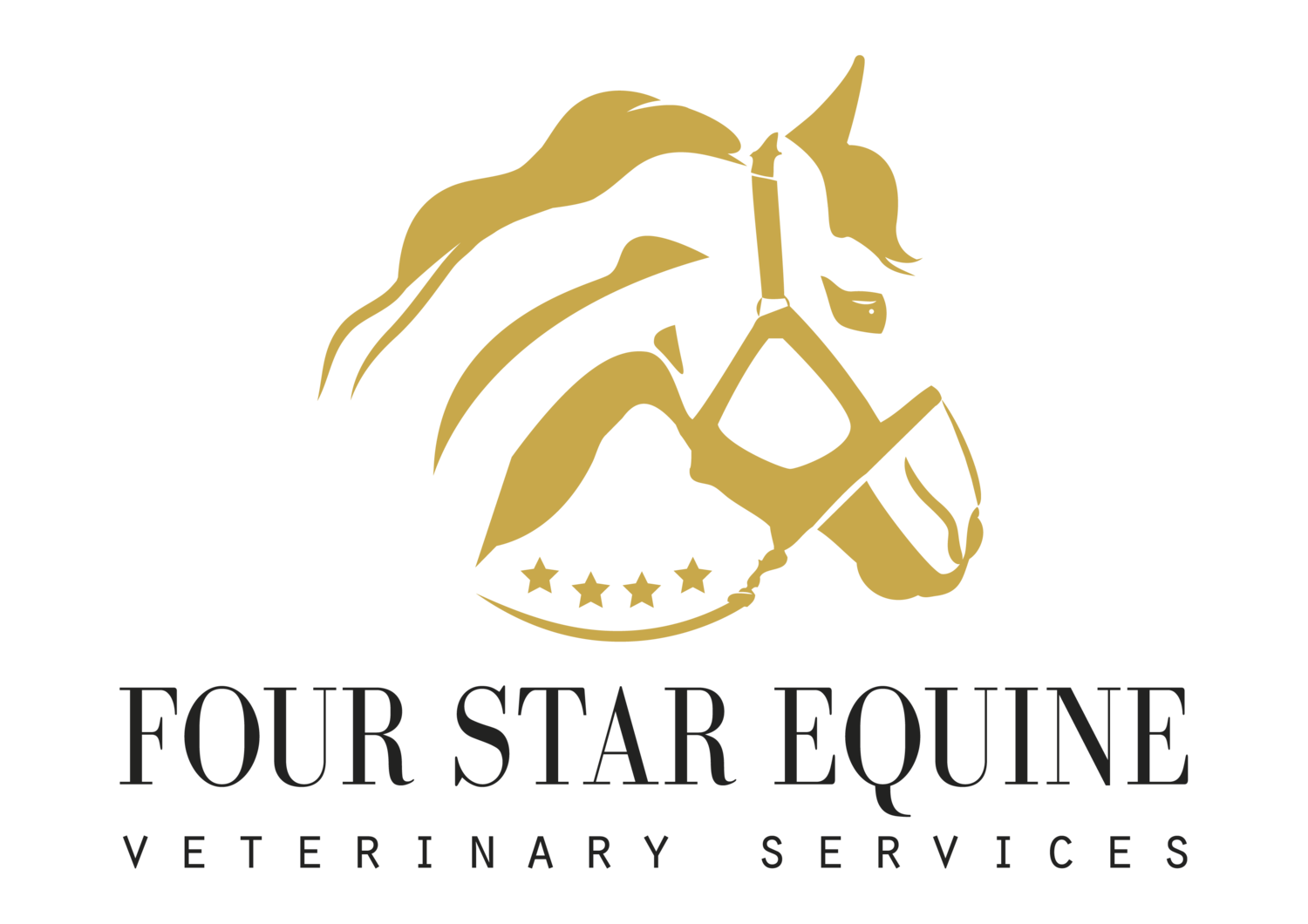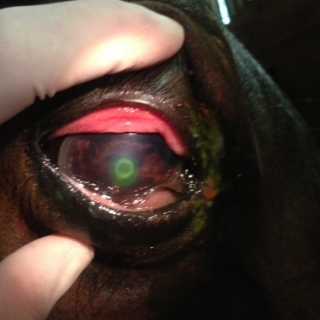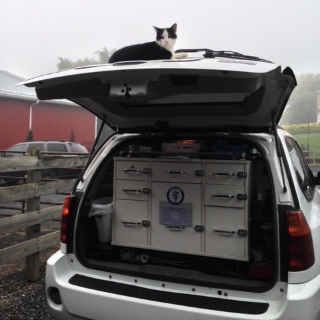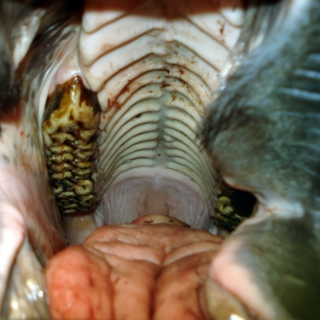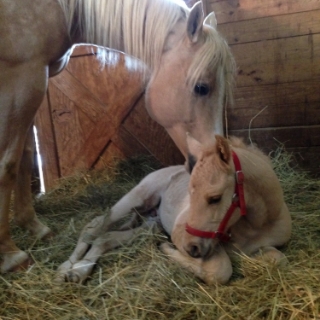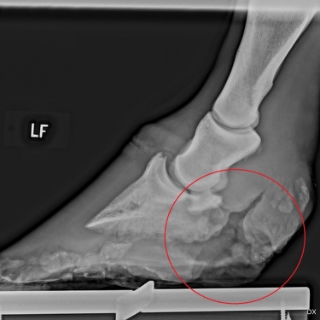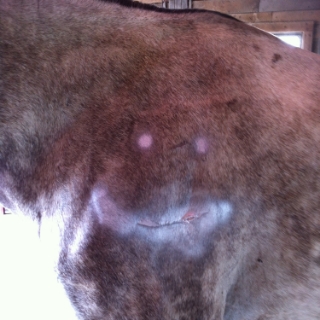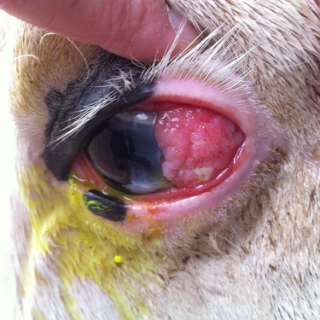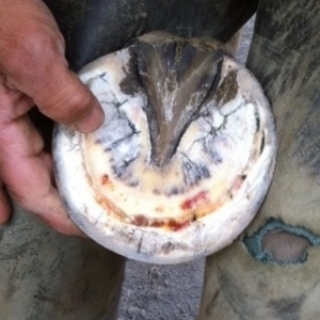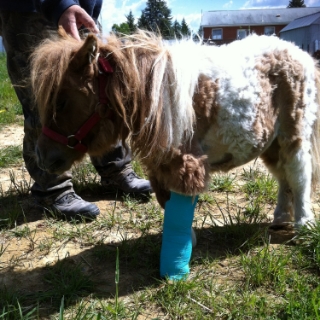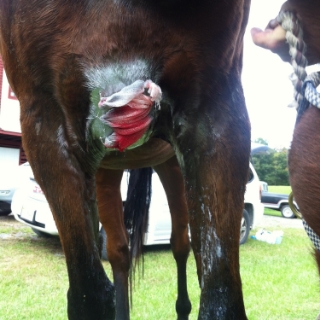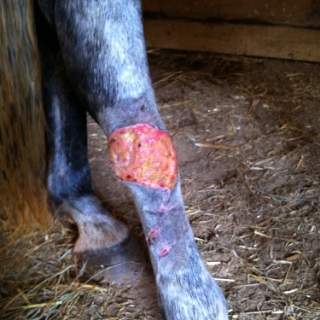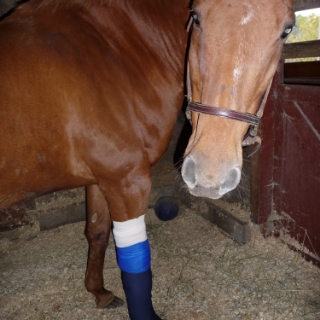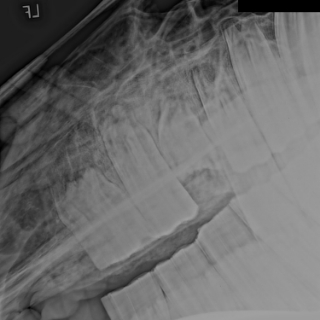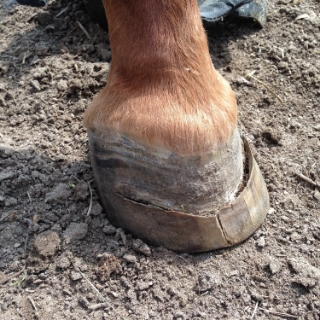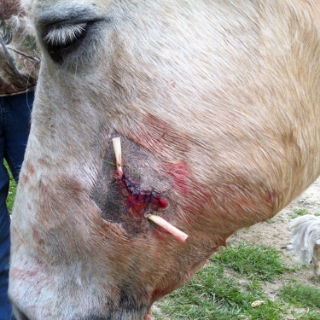Emergencies can be a scary experience. You should know what types of situations constitute an emergency so that you can respond appropriately and act quickly. If you are ever unsure if your horse is in need of immediate medical attention please call and our veterinarians can help make that determination. At this time we can only guarantee same day emergency treatment for current clients in good standing (have been seen for wellness exam and service within last year, financial good standing). We will make efforts to accomodate others during business hours but additional fees may apply. We do not see after hours emergencies for non-clients. Details about our emergency service policy can be found here
Listed below are some of the most common types of equine emergencies:
Colic
There are many causes of abdominal pain, or colic, in the horse. What's most important is to recognize the signs of colic, which may include: going of feed, pawing, rolling, flank watching/biting, bloated appearance, or just dullness. If your horse is showing any one or more of these signs please call.
Lacerations/Wounds
Lacerations should be cleaned thoroughly and some may need sutures. In some cases your horse may require antibiotic treatment to prevent infection.
Ocular
If your horse is squinting, tearing, has swelling or injury around the eye, or a change in the corneal surface (usually discoloration) you should call immediately. Eye injuries can cause irreversible damage if not caught and treated early.
Non Weight Bearing Lameness
If your horse cannot put weight on one or more limbs there is a possibility of fracture or other catastrophic damage. Another cause of severe lameness is laminitis or founder. Generally the horse will avoid putting weight on the front feet (or occasionally hind feet) by rocking back or lying down and will be very reluctant to move.
Fever
Fever has many causes, but if your horse is lethargic, off feed and/or generally acting sick take his temperature. Generally we use digital thermometers to take a rectal temperature. Make sure you have a way to safely restrain your horse, as some of them may object to this.
Foaling and Newborns
If your mare is having difficulty during foaling it is a true emergency. Time is of the essence in order to save the mare and foal. If your mare has been in active labor (straining) for more than 30-60 minutes or some part of the foal is visible but it is not making any progress do not delay, call immediately. Remember that newborn foals should stand within 1 hour and nurse within 2 hours. If the foal seems weak or cannot suckle from the mare you should call immediately. Call if you would like to discuss any part of the pregnancy, foaling process, or newborn care.
There are many more types of equine emergencies. You know your horse and if you feel something is not right please call.
Normal vital signs:
Temperature: 99-101.5, a body temperature of 102 and above is considered a fever.
Heart rate: 30-42 beats per minute
Respiratory rate: 8-24 breaths per minute
Gut sounds should be present is all four quadrants (right and left upper and
right and left lower), you should hear an intestinal contraction about 1-2 times per minute.
